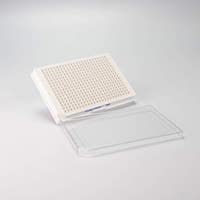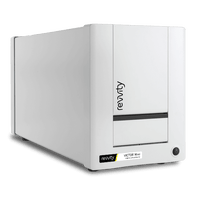
LANCE Streptavidin Fluorophore tag, 50µg
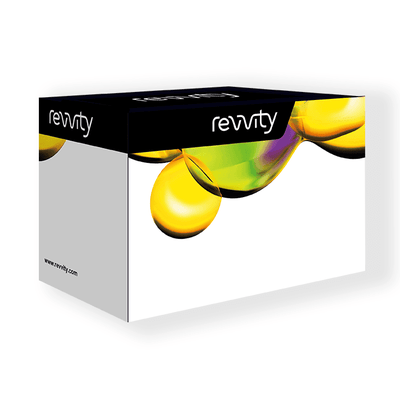
LANCE Streptavidin Fluorophore tag, 50µg
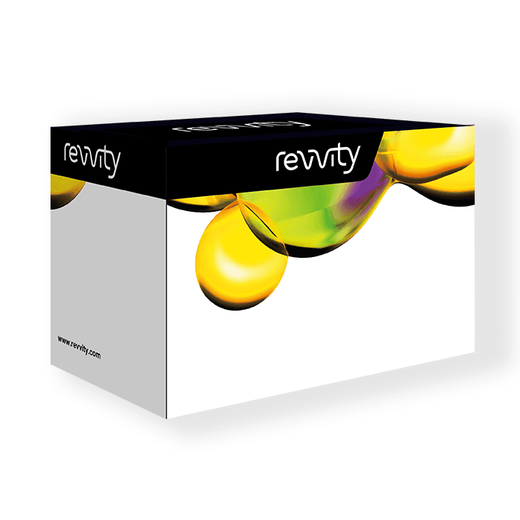

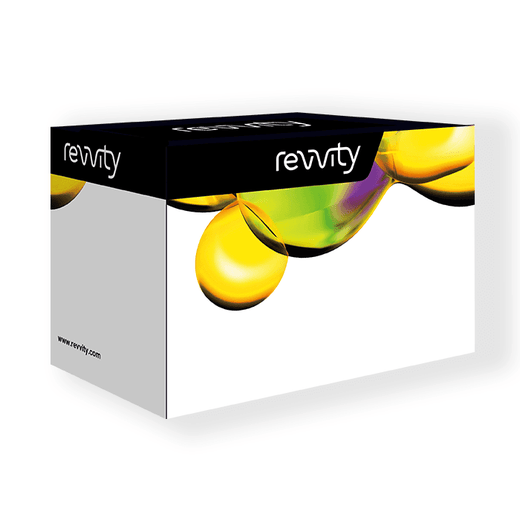

Europium-labeled streptavidin, for capturing biotinylated biomolecules in LANCE TR-FRET assays. The W8044 chelate provides more stability than the W1024 chelate.
For research use only. Not for use in diagnostic procedures. All products to be used in accordance with applicable laws and regulations including without limitation, consumption and disposal requirements under European REACH regulations (EC 1907/2006).
| Feature | Specification |
|---|---|
| Application | Protein-Protein Interaction |
Europium-labeled streptavidin, for capturing biotinylated biomolecules in LANCE TR-FRET assays. The W8044 chelate provides more stability than the W1024 chelate.
For research use only. Not for use in diagnostic procedures. All products to be used in accordance with applicable laws and regulations including without limitation, consumption and disposal requirements under European REACH regulations (EC 1907/2006).


LANCE Streptavidin Fluorophore tag, 50µg


LANCE Streptavidin Fluorophore tag, 50µg


Product information
Overview
Isolated from fermentation filtrates of Streptomyces avidinii, 1 mg of streptavidin binds approximately 10 µg of biotin. The preparations are supplied ready to use in 50 mmol/L Tris-HCl buffered saline solution. For assays that require a high EDTA concentration, a high temperature or a pH below 7, the W8044 series of Europium chelates is a better choice because of their greater stability.
Generic LANCE® reagents are intended for setting up homogeneous time-resolved fluorescence resonance energy transfer (TR-FRET) based assays using Eu-Chelate label as a donor and APC-labeled reagent as an acceptor. Generic reagents facilitate setting up LANCE® assays when there is a limited amount of specific reagents available or the assay reagents are relatively unstable. To enable optimization of both the signal or the noise ratio and signal stability, some of the generic reagents are labeled with two different chelates, W1024 or W8044.
LANCE® (Lanthanide chelate excite) and LANCE® Ultra are our TR-FRET (time-resolved fluorescence resonance energy transfer), homogeneous (no wash) technologies. One molecule of interest is labeled with a donor fluorophore (a LANCE Europium chelate) and the second molecule is labeled with an acceptor fluorophore [ULight™ dye, allophycocyanin (APC), etc.]. Upon excitation at 320 or 340 nm, energy can be transferred from the donor Europium chelate to the acceptor fluorophore if sufficiently close for FRET (~10 nm). This results in the emission of light at 665 nm (for ULight dye and APC).
Specifications
| Application |
Protein-Protein Interaction
|
|---|---|
| Automation Compatible |
Yes
|
| Brand |
LANCE
|
| Conjugates |
Streptavidin
|
| Detection Modality |
LANCE
|
| Fluorophore |
Eu-W8044
|
| Product Group |
Fluorescent Reagent
|
| Shipping Conditions |
Shipped in Blue Ice
|
| Target Class |
Binding Assay
|
| Technology |
TR-FRET
|
| Unit Size |
50 µg
|
Resources
Are you looking for resources, click on the resource type to explore further.
Here, we demonstrate the utility and benefits of using LANCE Ultra TR-FRET assay technology for identifying and characterizing PD...
SDS, COAs, Manuals and more
Are you looking for technical documents related to the product? We have categorized them in dedicated sections below. Explore now.
-
LanguageEnglishCountryUnited StatesName
-
LanguageEnglishCountryEUName
-
Lot number3228848Lot dateNovember 16, 2023Name


How can we help you?
We are here to answer your questions.































